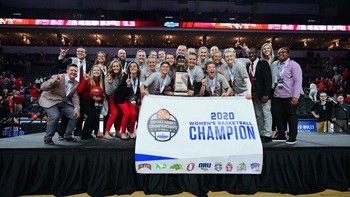USD Biology Professor awarded 1 8 million four-year NSF grant for ontology-enabled reasoning
Mabee’s research grant was paired with a collaborative award of $1,305,788 to the University of North Carolina, bringing the total NSF award for their combined effort to $3,123,455. It is the first research of its kind to link together the very well-known genetic databases for zebrafish, mice and frogs with the comparative anatomical data from all vertebrates, including fossil dinosaurs. The project further develops ontology-driven tools for machine reasoning over large volumes of phenotype data. Ontologies are structured, controlled vocabularies that can be applied to collections of descriptive data to permit logical reasoning to be used. Human-readable descriptions of anatomy and behavior have not previously been well-suited to computational analysis. Yet, in evolutionary biology, genetics and development, computational assistance is necessary to discover patterns within the enormous volumes of descriptive phenotype data that are being reported in databases. Mabee’s research will use the evolutionary transition from fins to limbs as a test system, and her project will develop ontologically-aware software that allows users to discover similar sets of phenotypes for different taxa or mutant genes within large and diverse datasets. The research discoveries will be especially interesting and useful to evolutionary biologists and geneticists as they will be able to understand what genes are responsible for evolutionary changes, for example posture changes from primates to humans, very quickly.
Mabee’s current research project builds from a previous project that was funded by a four-year grant from the National Science Foundation. Her work is additionally supported by a NSF Research Coordination Network grant that was awarded in October 2010 ($500,000 over five years). Mabee is the lead in creating an international consortium of researchers to find ways to utilize computers to reason across phenotypic data. Until this research, no standards were available to create common ways to represent this type of data for computers. Today, more than 300 researchers from over 15 countries have joined the consortium with workshops engaging top level companies such as Google that may be interested in this computational process of data sharing.
“The current research projects are expected to yield information that will be of immediate and enduring value to the greater biology community,” said Mabee. “Tools for streamlining data curation and performing large-scale semantic similarity searches, high quality vertebrate taxonomy and anatomy ontologies, and standards for reasoning over homology are the overall goals of this project.”
“Dr. Mabee is an exceptional research scientist and an outstanding leader of the collaborative science that is the future of innovation,” said Dr. Laura Jenski, Vice President for Research at USD. “This computational biological research has the potential to revolutionize the way researchers share evolutionary and genetic data, allowing research to build quickly from previous discoveries.”
A photo of Mabee is available for download at www.usd.edu/press/news/images/releases/Paula_Mabee.jpg.


